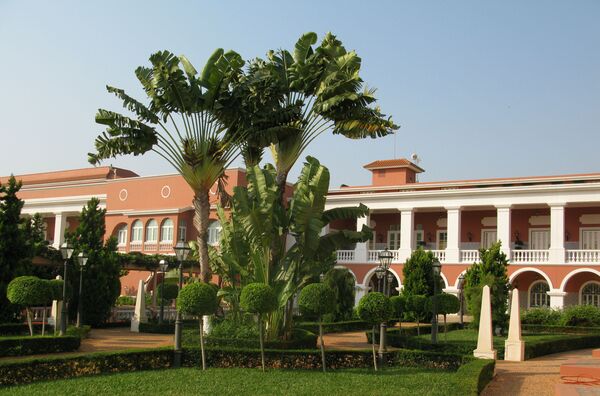China is winning in the global race for Africa, replacing the continent's traditional partners and patrons, Nikolai Shcherbakov, an analyst at the Center for African Studies of the Institute of General History of the Russian Academy of Sciences (RAS), told Sputnik China.
"The 'battle' for Africa is underway, but in many ways it has already been won by China," the analyst emphasized. "African countries' traditional relations with former metropolitan [countries] and the US are giving way to cooperation with the People's Republic of China (PRC). China is now dominant in Africa."
The scholar pointed out that for a significant number of African states China has become the most important major strategic partner. He stressed that it is very important for the countries of the continent as they are benefitting from this collaboration a lot.
It has become a tradition for Chinese foreign ministers to visit Africa first each new year in order to demonstrate that relations with the continent are a priority for Beijing. This tradition has been kept for almost 28 years.
READ MORE: Railway Diplomacy: How 'China is Building Routes in All Possible Directions'
Observers believe that Wang's African tour is aimed at preparing the ground for the 2018 FOCAS which is expected to bring together top officials from 51 African states, except Swaziland and Burkina Faso that maintain diplomatic relations with Taiwan.
Given the fact that China has invested about $300 billion to support trade and economic cooperation with Africa in the coming years, the forum is sure to be a success.
"If China, indeed, gathers such a representative summit, it will be a new confirmation of its bid for the replacement of former metropolitan countries and the US in relations with African states in economy and other spheres," Shcherbakov emphasized. "Wang Yi's announcement of China's plan to hold a historic China-Africa summit is a serious political claim for the leadership in Africa."
African Counties Severing Ties With Taiwan to Cooperate With China
One of the countries visited by Wang during his African trip was Sao Tome and Principe. It was the first visit of a high-ranking Chinese official to the state after Sao Tome and Principe established diplomatic relations with Beijing in the end of December 2016. Earlier Sao Tome severed diplomatic ties with Taipei. The move was made in accordance with the One China policy which says that both Taiwan and mainland China are parts of the PRC.
At the same time, the Chinese foreign minister noted that there are still some countries in Africa that cannot establish normal ties with China and participate in China-Africa cooperation because they still maintain "diplomatic relations" with Taiwan.
According to Chen Xiaoxiao, a researcher at Xiamen University, more countries are likely to break off diplomatic ties with Taipei in the coming years. The researcher recalled that Gambia and Panama followed in Sao Tome and Principe's footsteps, after the country had resumed ties with Beijing.
"We see that the situation around Taiwan is changing regardless of whether Taiwan authorities adhere to the One China policy and what foreign policy they are pursuing," Chen underscored. "In addition, China has already become the most important trading partner in Africa, surpassing the United States and the former metropolitan countries."
The scholar pointed out that the political significance of China-Africa relations is hard to overestimate: It's a joint long-term project aimed at the development of African countries. "Having become the engine of the Asian economy, China is now leading African countries to prosperity," Chen stressed.
The views and opinions expressed by Nikolai Shcherbakov, Chen Xiaoxiao are those of the speakers and do not necessarily reflect those of Sputnik.






